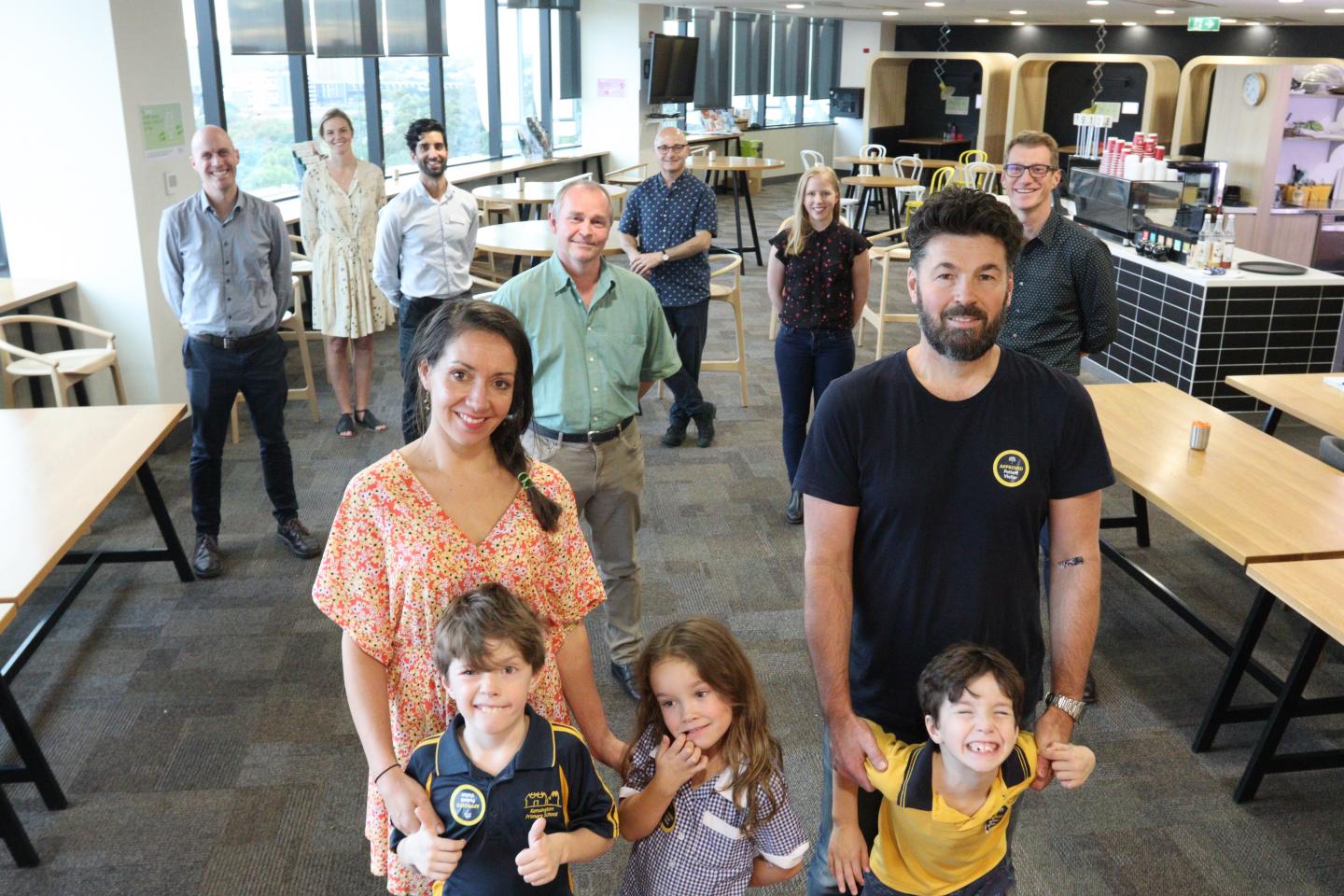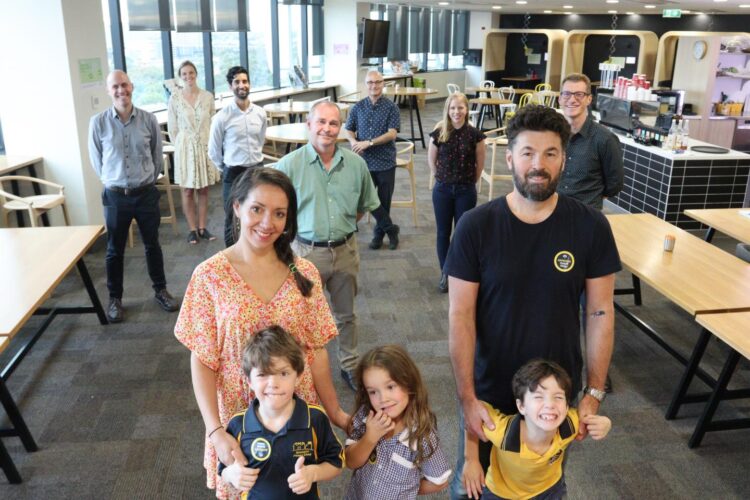
Credit: MCRI
Children in a Melbourne family developed a COVID-19 immune response after chronic exposure to the SARS-CoV-2 virus from their parents, a new case report has found.
The research, led by the Murdoch Children’s Research Institute (MCRI) and published in
Nature Communications, showed that despite close contact with symptomatic infected parents, including one child sharing the parents’ bed, the children repeatedly tested negative for COVID-19 and displayed no or minor symptoms.
MCRI’s Dr Shidan Tosif said compared to adults, children with COVID-19 usually have very mild or asymptomatic infection, but the underlying differences between children’s and adults’ immune responses to the virus remained unclear.
The study looked at the immune profile in a Melbourne family of two parents with symptomatic COVID-19 and their three primary school aged children. Before COVID-19 took hold in Australia, the parents attended an interstate wedding without their children. After returning, they developed a cough, congested nose, fever and headache, and all family members were immediately recruited for the research study.
Samples including blood, saliva, nose and throat swabs, stools and urine were collected from the family every 2-3 days.
The researchers found SARS-CoV-2 specific antibodies in saliva of all family members and in detailed serology testing compared to healthy controls.
MCRI’s Dr Melanie Neeland, who led the laboratory-based aspect of the report, said the team performed a careful analysis of the various subsets of immune cells and antibody types, showing that the children mounted an immune response that potentially contained the virus.
“The youngest child, who showed no symptoms at all, had the strongest antibody response,” she said. “Despite the active immune cell response in all children, levels of cytokines, molecular messengers in the blood that can trigger an inflammatory reaction, remained low. This was consistent with their mild or no symptoms.”
Dr Tosif said that while all family members fully recovered without requiring medical care, the team unfortunately could still not be certain how long, if at all, they would be protected from reinfection.
MCRI Associate Professor Nigel Crawford said the study raised the possibility that despite chronic exposure, children’s immune systems allowed them to effectively stop the virus from replicating inside their cells.
“Investigating immune responses to SARS-CoV-2 across all age groups is key to understanding disease susceptibility, severity differences, and vaccine candidates,” he said.
###
Researchers from the University of Melbourne, The Royal Children’s Hospital, Peter Doherty Institute for Infection and Immunity, University of Amsterdam, University of Michigan, Launceston General Hospital, University of Tasmania, Monash University, RMIT University, and the WHO Collaborating Centre for Reference and Research on Influenza also contributed to the study.
Publication: Shidan Tosif, Melanie R. Neeland, Philip Sutton, Paul V. Licciardi, Sohinee Sarkar, Kevin J. Selva, Lien Anh Ha Do, Celeste Donato, Zheng Quan Toh, Rachel Higgins, Carolien E. van de Sandt, Melissa M. Lemke, Christina Y. Lee, Suzanne K. Shoffner, Katie L. Flanagan, Kelly B. Arnold, Francesca L. Mordant, Kim Mulholland, Julie Bines, Kate Dohle, Daniel G. Pellicci, Nigel Curtis, Sarah McNab, Andrew Steer, Richard Saffery, Kanta Subarrao , Amy W. Chung, Katherine Kedzierska, David Burgner and Nigel W. Crawford. ‘Immune responses to SARS-CoV-2 in three children of parents with symptomatic COVID-19,’ Nature Communications. DOI: 10.1038/s41467-020-19545-8
Available for interview:
Dr Melanie Neeland
Dr Shidan Tosif
Associate Professor Nigel Crawford
Family involved in the study
MRN is supported by a Melbourne Children’s LifeCourse Fellowship, PVL is supported by NHMRC Career
Development Fellowship (#1146198), PS is supported by a DHB Foundation Fellowship. This work was supported
by Jack Ma Foundation to KK, AWC, the Clifford Craig Foundation to KLF and KK, NHMRC Leadership Investigator
Grant to KK (1173871), NHMRC Program Grant to KK (1071916), Research Grants Council of the Hong Kong Special
Administrative Region, China (#T11-712/19-N) to KK. AWC is supported by a NHMRC Career Development
Fellowship (#1140509), KK by NHMRC Senior Research Fellowship (1102792), CES has received funding from the
European Union’s Horizon 2020 research and innovation program under the Marie Sk?odowska-Curie grant
agreement (#792532). This work is supported by Victorian Government’s Medical Research Operational
Infrastructure Support Program.
Media Contact
Bridie Byrne
[email protected]
Original Source
https:/
Related Journal Article
http://dx.





